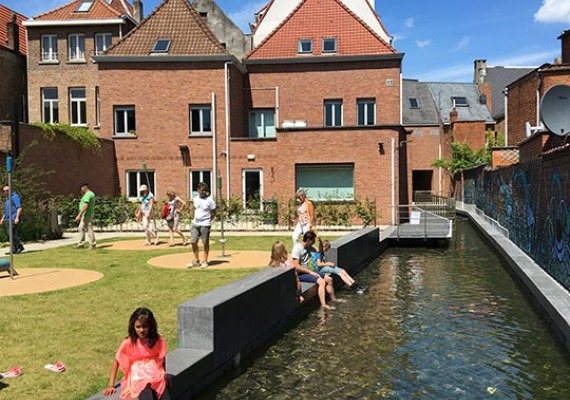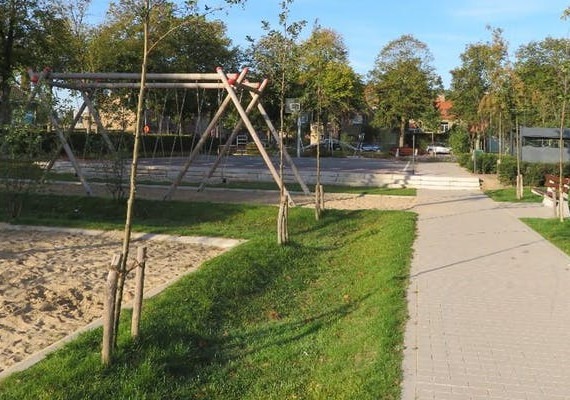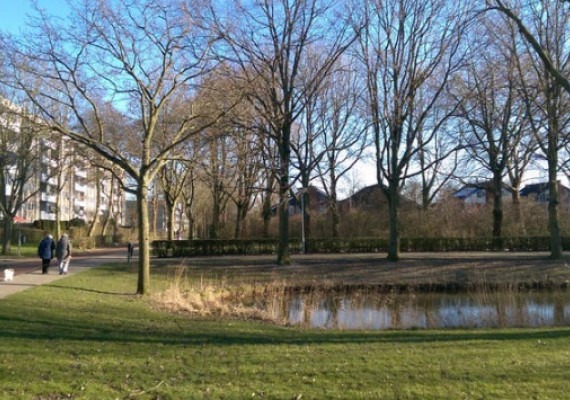WRC



Water Resilient Cities: Increasing urban resilience to climate change through improved storm water management
Priority Axis
Adaptation to Climate ChangeSpecific objective
Adaptation to Climate Change
Lead partner
Plymouth City CouncilContact
Start Date
25/11/2016End Date
31/12/2020Project budget
7 755 069 €ERDF amount
4 653 042 €ERDF rate
60%About
Common challenge
The WRC project originated from the observation that the 2 Seas area has many urban areas characterised by dense development, often being historically important and protected. Out-dated drainage in such areas often cannot cope with heavier rainfall caused by climate change: rainstorms are becoming more intense and frequent; sealed surfaces prevent infiltration to the soil (causing excess runoff); sewers are overwhelmed, causing flooding and pollution. Sea level rise/storm surges increasingly prevent effective drainage of low-lying urban areas. These issues can be found throughout the 2 Seas area and can be directly correlated to existing development; risks are increasing due to climate change. There is little experience in retrofitting sustainable urban drainage (SUDS) to existing urban areas: sites typically have too little space to manage surface water within their boundary. The partnership believed that the solution lied in the public domain and this called for new, unprecedented types of cooperation to be established between municipalities and owners.
Overall objective
Main outputs
Cross border approach
Main Achievements
The Water Resilient Cities (WRC) project came to an end in 2020. The partnership has piloted sustainable drainage systems (SuDS) in five cities: Bruges, Mechelen, Middelburg, Plymouth and Wimereux. By working together, partners were able to overcome institutional barriers and find technical solutions to test innovative approaches leading to reduced flooding while protecting and improving amenities, biodiversity, health and wellbeing.
The Millbay Boulevard in Plymouth links the city centre with the waterfront via an attractive route that integrates sustainable urban drainage to protect 1.7 square kilometres of urban land from flooding.
King Albert I Park in Bruges has been retrofitted to resolve problems of storm water storage and water quality in a very sensitive historic area, creating an additional buffer of 400 m3 water and improving water quality. In Wimereux, Foch Square has been refurbished using a draining concrete product based on shellfish waste. An innovative underground basin has been built creating over 1,000 m3 of new buffering capacity.
In the Dauwendaele district of Middelburg, the De Overloper sustainable drainage system is being implemented next to a shopping centre and co-creation with residents in Molenwater park area resulted in 2,200 m3 rainwater storage system, offering flood protection to 270 surrounding houses. Finally, the historic course of the River Dijle in Mechelen has been opened up; storm water storage capacity was increased by 27,000 m3, with 130 ha being better protected from flooding in the city.
The project is particularly proud to have overcome the Covid-19 crisis yet still deliver complex pilots, despite the impact on construction sites. Additionally, to help disseminate the findings from the project a SuDS Guide has been produced providing case studies and recommendations on SuDS in confined urban environments. A SuDS Award was launched to promote best practice, with the Award winners invited to the project’s final dissemination event in Peterborough, entitled “Retrofitting SUDS: From Design to Delivery”.
Finally, the event along with a SuDS training workshop on the WRC Quick Scan Tool for SuDS attracted businesses, planners, designers and policy makers. This was the culmination of a successful series of other WRC network events held in Bruges, Condette, Mechelen and Middelburg which attracted an average of around 100 delegates each.
Testimonial
“The project is providing much needed sustainable infrastructure improving the link between the City Centre and Waterfront and enabling new development sites for 600 new residential units, offices, a 200 bed hotel, new leisure, cultural and community uses. The SuDS has a capacity of 240 cubic metres (equivalent to the volume of seven standard shipping containers) to support the city’s new storm water sewer system.”
